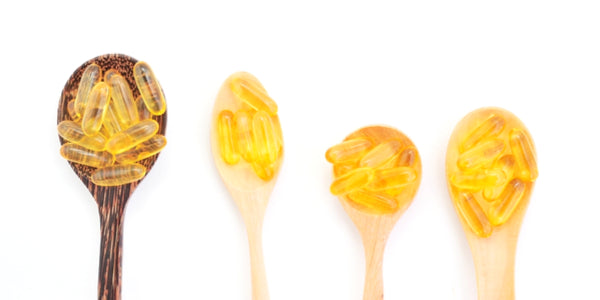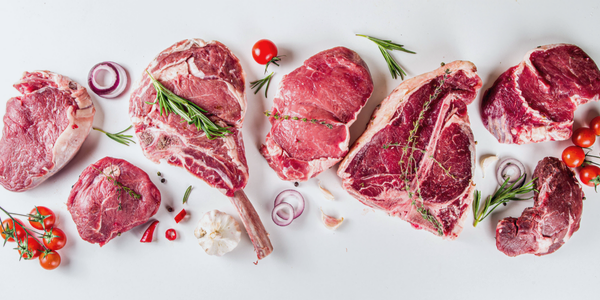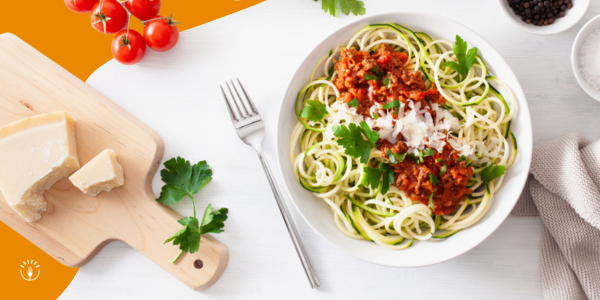
Introduced in the 1950s, vitamin U is a compound found in raw cabbage juice. It is not so much a true vitamin as it is a derivative of the amino acid methionine.
So what is vitamin U, really? Why might U need to know about this special compound?
Let's explore the vitamin often not heard of, but deserving of attention!
What Is Vitamin U?
The well-respected Merck Index lists vitamin U as methyl-methionine-sulfonium chloride. This is basically a fancy label for a specific derivative of methionine, one of the major amino acids. Organic compounds that link together to form proteins, amino acids are literally the building blocks of life.
While available a supplement, and as most dietitians encourage, aim to obtain it from whole food sources first. Foods containing the most vitamin U include cruciferous and green vegetables identified below.
Vitamin U Benefits
A newer compound on the market, vitamin U is most touted as a treatment of peptic ulcers. However, other research has focused on further vitamin U benefits such as improved digestion and immune health, the ability to lower cholesterol, and accelerate wound healing time. Still, more research is needed to fully understand the effects of the vitamin.
At minimum, the vitamin can be a more natural and safe holistic remedy alternative to typical medications known to reduce acid indigestion. Sometimes referred to as gastric reflux, acid indigestion is the precursor of an ulcer.
Ulcers
Some research studies have suggested that drinking 1 quart of cabbage juice daily helps ulcers heal quicker than the other standard treatment during the onset in the 1950s.
However, whether the reduction of symptoms and improved healing was solely related to the effects of vitamin U or a synergistic combination of compounds is not fully known. Nonetheless, the results proved worthy to the medical community.
Digestion
In general, vitamin U produces positive results within the gastrointestinal (GI) mucosa. Thus, beyond ulcers, it is anecdotally beneficial towards other GI conditions and complications such as:
• Esophagogastric lesions
• Chronic gastritis
• Ulcerative colitis
• Hernias
Cholesterol
One study evaluated the effects of the vitamin in adipocytes, aka fat cells. The results indicated a gradual decrease in triglyceride and cholesterol levels with increasing concentrations of vitamin U.
In another 8-week study, people provided 1.5 grams of vitamin U per day experienced higher HDL cholesterols (the good kind). They also had about a 10 percent reduction in total cholesterol.
Wound Healing
Recognizing the vitamin's powerful effects on gastric ulcers, which disrupts mucosal lining, some researchers hypothesized it might also expedite wound healing.
A few animal studies showed topical administration of vitamin U led to the following processes:
• Facilitated physical and chemical wound closure
• Promoted re-epithelialization
• Promoted the growth and migration of dermal fibroblasts
Simply, this is a scientific way of saying this compound facilitates the repair process of skin damage including wound healing.
How to Increase Vitamin U Intake
Supplementation is available and often used. However, eating whole foods that contain vitamin U is the best way to increase intake.
Especially in raw form, the following whole foods produce the best prevention and promotion results:
• Carrots
• Cabbage
• Celery
• Parsley
• Green onions
• Asparagus
• Beetroot
• Potatoes
• Broccoli
• Turnips
• Spinach
• Kale
• Cauliflower
Some other sources indicate the vitamin is also found in animal food like raw egg yolks and the milk and livers of animals raised in clean environmental conditions. How interesting to see cooking can change the active properties of nutrients and thus, foods. Chemistry at its finest!
The Bottom Line
While more research is needed, vitamin U proves to be a valuable remedy for various ailments such as healing peptic ulcers, wounds, amongst others.
The highest quantities of this compound reside in cruciferous veggies, but many others as well. If nothing else, vitamin U can serve as one tool in the arsenal of treatment options.
References:
James Heffley PD. To Your Health. What is 'vitamin U' and what are its benefits healthwise? - Columns - The Austin Chronicle. http://www.austinchronicle.com/columns/2006-07-28/390507/.
Vitamin U. Starkel Nutrition. http://www.starkelnutrition.com/2018/vitamin-u/. Published July 15, 2019.







